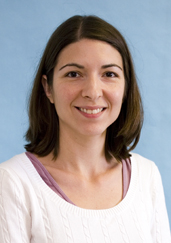Research Summary
Dr. Tamayo is a Professor in the Department of Microbiology and Immunology. Her research interests lie in the mechanisms used by pathogens to sense, respond, and adapt to changing host environments. She has studied diverse intestinal pathogens: Salmonella enterica serovar Typhimurium, Vibrio cholerae, and Clostridioides difficile. Through this and other work, she has gained broad expertise in bacterial genetics, molecular biology, second messenger signaling, protein biochemistry, RNA biochemistry, high-throughput sequencing, and animal models of disease. A central goal of her laboratory’s current research is to determine how C. difficile regulates gene expression. Her group has played a vital role in characterizing the ability of C. difficile to generate phenotypic heterogeneity through phase variation. Her lab discovered that C. difficile phase varies flagella and the toxins required for disease development. During these studies, they noted that C. difficile generates two colony morphologies, rough and smooth, and determined that this bacterium can reversibly switch between the two morphotypes. The two variants differ in other phenotypes, including cell length, cell chaining, surface motility, biofilm formation, and virulence in hamsters. The research has sought to determine the biological relevance and the molecular basis of these phenomena.
CGIBD Focus Area(s): Microbiome
Pilot and Feasibility Award 2010
Collaborators: Azcarate, Magness
